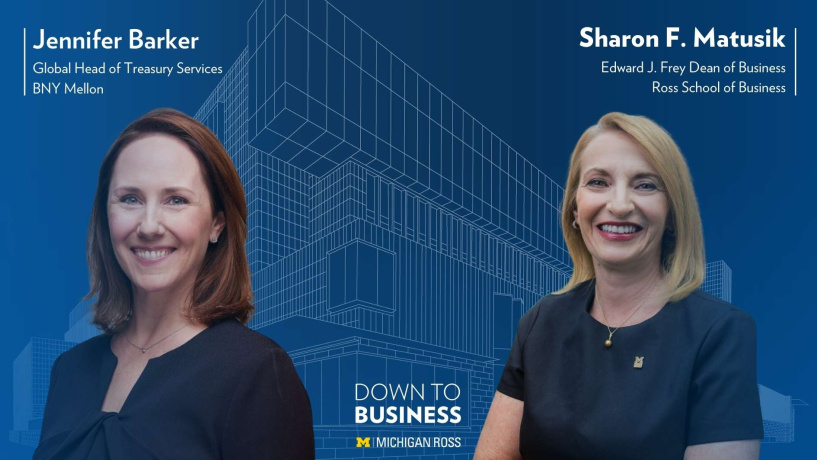How to Overcome Your Reluctance to Ask For Help at Work

People are very generous — if you ask. Professor Wayne Baker explains how to make a thoughtful request.
Jessica was overwhelmed and didn’t know what to do. She is a generous person by nature who had volunteered, as she often does, to help a stressed-out colleague. . . . But what started out as a simple favor for a colleague in distress soon grew into a colossal headache for Jessica.
“The additional workload didn’t seem overwhelming when I agreed to help,” Jessica told me. “But I quickly realized how time-consuming it was.” She began coming into the office early, staying late, and working through lunch to keep up with her existing job duties. She became resentful of the rest of her team for going out to lunch, or leaving work at 5:00 p.m. “I was even resentful when people stopped by my office to catch up!” she said. “A 15-minute conversation with a coworker meant 15 minutes I wouldn’t be able to spend with my family that evening.”
Jessica needed some help of her own. But she never asked for it. “I assumed that my other team members had full plates also, so I continued to labor through the workload,” she explained. “I didn’t know how important it was for me to raise my hand and ask for help. I assumed that it was the responsibility of my manager or coworkers to notice how much extra work I was doing and offer to help shoulder the load.”
As Jessica’s desperation grew, she saw only one solution: quit. And that’s what she did. Looking back on her situation, she realized that the problem was never her job or her employer, it was her own failure to ask for the help she needed to get her work done.
—from All You Have to Do Is Ask: How to Master the Most Important Skill for Success
Jessica, who is featured in my book All You Have to Do Is Ask, is an example of an overly generous giver, someone who freely gives or helps but doesn’t ask for what she needs. According to my research, most people fall into this category at work.
Here’s the problem: If you’re so generous that you get burned out, it can sap your energy, your resources, and your ability to live up to your commitments. On top of that, 70-90% of the help that is given in the workplace is in response to requests for help. If you don’t ask for what you need, all of the answers and resources that people would gladly share with you are wasted.
The solution is to learn how to ask for help. When we seek help as an individual, a team, or an organization, we’re better at learning and problem solving, more creative, more satisfied with what we do, more efficient, and less stressed and burned out. It sounds simple, and yet it’s so difficult—which is why a great deal of my research has investigated how to make asking easier and more effective.
The obstacles to asking
One of the activities I developed (along with entrepreneur and social capital expert Cheryl Baker) is the Reciprocity Ring, a facilitated group process where people ask for something they need, and help other people in the group. Through the Reciprocity Ring, I’ve seen people get help to save $50,000 on laboratory testing, find their biological parents, and connect with a surgeon for specialized, life-saving surgery.
When I first led people through the Reciprocity Ring, I would always remind them to be generous. But, actually, that was never the problem; people were incredibly generous with their help. Instead, many people struggled with making a request for what they needed.
In my experience, people in the workplace wait to ask until they’re stuck and completely desperate. Why? Here are some of the reasons why we don’t ask, based on my experiences over many years working with executives, professionals, and business students, as well as relevant research.
1. We are too self-reliant. Being confident in your ability to get things done alone is motivating, but it’s possible to go too far. Often, we can be much more effective, efficient, and creative by reaching out and asking for input and resources from other people.
2. We don’t want to appear weak, ignorant, or incompetent. We see asking for help as a sign of weakness, but we need to question that belief. Research suggests that as long as you make a thoughtful request, people will think you are more competent, not less.
3. We lack psychological safety. Psychological safety means that a workplace is safe for what Amy Edmonson calls “interpersonal risk taking.” People feel safe to speak up, admit mistakes, and ask for help. It’s simply a lot easier to ask if you aren’t afraid of being ridiculed or criticized for doing so.
4. We assume no one can help us. Many people have told me they don’t ask for what they need because they assume no one can help them. Numerous studies demonstrate, however, that most people—even strangers—are willing to help. But you have to ask. They can’t help you if they don’t know what you need.
5. We don’t feel we’ve earned the privilege of making a request. Asking is a privilege earned by helping others, we assume. But if everyone waited to give help before they received it, nothing would happen. Requests drive the giving-receiving cycle. In the short term, you might ask more than you give. The long-term goal is to be both a giver and a requestor in equal measure.
6. We don’t want to appear selfish. As long as you are helping others as well as asking for what you need, you won’t be. If you struggle with asking, look for opportunities to help. And remember: Asking for what you need is a strength, not a weakness.
How to make a thoughtful request
Another big reason why people don’t ask for help is because they don’t know what to ask for, or how to ask. Over the years, based on years of research, consulting, and teaching, I’ve developed a series of practices and guidelines to help with that.
Figure out your goal. Take some time to thoughtfully prepare and think about what you’re trying to achieve or what goal you’re trying to reach.
Once you know what that is, then you can figure out what resource you need. Here, you want to think broadly. The resource you’re seeking could be information, financial resources, a connection, expert advice, recommendations, volunteers, materials, or whatever else you need.
To get some clarity, try completing these statements:
- I’m currently working on…and I could use help to…
- I am struggling to…and I would benefit from…
- My biggest hope is to…and I need…
By doing so, you’ll have a concrete sense of what you are trying to accomplish, why, and the resources you need. You can make it a daily practice to complete these statements.
Make a SMART request. To make an effective, empowering request, follow the SMART criteria:
- Specific. Asking for something specific triggers people’s memories of what they know and who they know. A general request does not. The most general request I ever heard was from an executive from the Netherlands who said, “My request is for information.” And that was it. I asked, “Can you elaborate?” And then he said, “No, it’s confidential. I can’t say anything more.” Well, he got no help that day. The more specific your request, the more effective it will be.
- Meaningful. Include why you’re making this request. People often leave this out, but it’s the most important part of the SMART criteria. Why do you need that particular resource? What are you trying to achieve? Suppose, for example, that you simply said, “I need some volunteers to review a report for me.” This doesn’t tell why the request is important and meaningful. A stronger request would be, “I am developing a quarterly DEI report for the management team. The goal is to provide accurate, timely, and actionable metrics on our progress. I need three to five people who can spend about one hour reviewing the new report and provide feedback in the next five business days. Would you volunteer?”
- Action. Ask for something to be done, rather than restating your goal or the why of your request. In the example above, the action is people volunteering and then reviewing and providing feedback. Just saying “I need some volunteers to review a report for me” does not provide enough information about the actions required.
- Realistic. I encourage people to make stretch requests, but they need to be within the realm of possibility.
- Time. Mentioning a specific deadline is much better than a general one. If your request is urgent, say so. Urgency will motivate people to respond.
Ask the right people. When we need help, we tend to think of the same people—the boss or coworker, our friends, or somebody in our family or local community. But it’s helpful to think beyond the usual suspects.
Instead of asking someone who might have the resource you need, you can ask someone who might know someone else who has the resource—I call this the “two-step method.” Even if you don’t know who the expert is, you may know someone who probably does know. The two-step method expands your reach.
Another group of people we often overlook are dormant ties, relationships that we had in the past. We may be reluctant to ask a dormant tie for help and assistance because we feel that they wouldn’t be receptive. But research suggests that our dormant connections are delighted to hear from us and they want to help. And they’re important sources of help because our lives have gone in different directions, and now they know things and people that are very different from what and who we know.
You can also broadcast your request to a very large community, by using social media or an app like Givitas, which I co-developed to provide a safe place for people to ask for and give help, advice, information, and knowledge. Several open-access Givitas communities are available for anyone to join.
So, is it really better to give than receive? It may be better to give than to receive, but it’s best to give and to receive. There’s no giving without receiving, and it’s the request that drives the entire cycle. Asking, giving, and receiving turn the wheel of reciprocity.
This essay is adapted from Wayne Baker’s talk “Is it Really Better to Give than Receive?,” part of the Center for Positive Organization’s Positive Links Speaker Series.
 The essay was created in partnership with the Greater Good Science Center at the University of California, Berkeley and originally published on Greater Good. The Greater Good Science Center studies the psychology, sociology, and neuroscience of well-being, and teaches skills that foster a thriving, resilient, and compassionate society.
The essay was created in partnership with the Greater Good Science Center at the University of California, Berkeley and originally published on Greater Good. The Greater Good Science Center studies the psychology, sociology, and neuroscience of well-being, and teaches skills that foster a thriving, resilient, and compassionate society.







